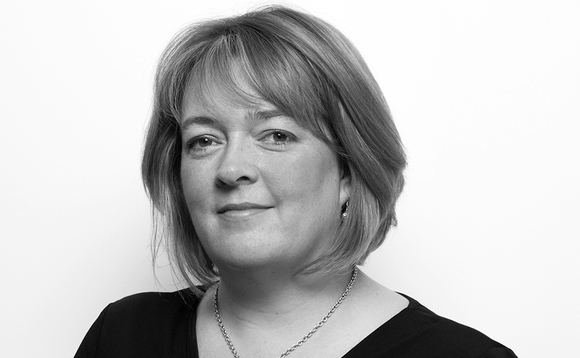
Private wealth demands access to PE, says Connection's Madden

Following Connection Capitalтs recent commitments to Beechbrook Capitalтs second mezzanine fund and DN Capitalтs third fund, Alice Murray speaks to partner Claire Madden about the rise of personal wealth entering the asset class
Alice Murray: Connection Capital recently committed to Beechbrook's and DN's recent funds – how did these opportunities come about?
Claire Madden: The investment in Beechbrook is very much orientated around our model, which all comes down to our network of investors. We've known the Beechbrook team for a while and have looked at deal opportunities with them in the past; we know how they work. Another key attraction to this fund was coming in at the second close, which meant the fund had already made some investments, providing us with a good level of visibility. We were especially attracted by Beechbrook's relatively low risk nature; they have a nice niche in the lower mid-market, where there isn't a great deal of competition but lots of good dealflow. The terms of the fund were also attractive, and they produce steady returns. This means our investors benefit from distributions throughout the fund life, rather than a lump sum several years down the line.
With DN's recent fund, again, we came into contact with them through our client network. Our investment manager Patrick O'Dolan knew the DN team very well. As the fund is two years into its investment period there has already been a substantial uplift in portfolio value, which had been determined by an independent benchmark.
Our client base has a good appetite for higher risk funds, which doesn't fit with our deal-by-deal model. We believe venture investments should be part of a wide portfolio, as this allows our clients to spread their risk. It is especially difficult for individuals to access top-quartile venture funds.
AM: How does a fund investment from Connection work in practice?
CM: We agree with the fund manager to invest a range; first we agree a minimum investment, which we then raise from our network. From the fund manager's point of view we are seen as one institutional investor.
We invest via a nominee, so DN, Beechbrook or any of the managers that we invest in, do not have to manage the syndicate sitting behind that. This benefits the fund manager as their main concern is raising capital. For our clients, they can pick and choose what they invest in, which you don't get with a typical fund-of-funds. So our clients can effectively build their own portfolio and access institutional investments.
One of the major advantages for investing in Beechbrook is the added dealflow we can access through them. Beechbrook is keen to work with an investor who is happy to co-invest in its mezzanine opportunities in tranches of £1-3m. Typically, institutional investors only want to co-invest at much higher levels. Our clients love mezzanine; it is a high-yielding, strong product, so the ability to do more mezzanine co-investment was another big draw for our clients.
And with DN, a big advantage we can bring to them is our network for sourcing talent, as well as dealflow. Where we sit in the market, focusing on growth-cap deals of between £1-5m, we are still introduced to a lot of early-stage deals that are outside our remit but very interesting opportunities. We have already passed over two such opportunities to DN.
AM: Individuals are clearly demanding access to alternative funds – we can see this through the creation of more retail-style funds in the industry – but what is driving this?
CM: As we have seen LPs shift their view of the asset class, with more demand to do co-investments, after having looked more carefully at the economics of funds, individuals are doing the same. They are looking very closely at fees and exactly where their investments are being put to work.
Our investors want to make their own investment decisions – they don't want to just park their cash in a blind fund-of-funds pool with a single asset strategy. And, as performance throughout the entire investment universe has been questionable, individuals want to take back control; they want to do their own due diligence and pick and choose where they invest.
AM: With this in mind, is it possible that private wealth will at some point form a substantial part of the investor base for alternatives?
CM: The appetite that our own clients have for alternatives is, I believe, a good indication of the growing interest from the private wealth sector in the asset class. I definitely think the amount of private wealth being invested will grow as private investors realise the potential benefits of including alternatives in their portfolios.
From an underlying fund's point of view, they are happy for someone to sit in between the individuals and the fund; there's a huge amount of work involved in aggregating these investors, which requires an intermediary. But it doesn't matter to the fund itself if the capital is coming from one investor or several. It's more a question of if there are enough intermediaries to carry out the management and administration required.
Also, the private equity landscape is still changing – we're still experiencing a shake-out, which means that those that do survive will naturally find it easier to raise capital from institutional investors.
AM: With more and more individuals piling into alternatives, could we see improvements in fund transparency and reporting?
CM: The dissemination of a fund, looking at valuations and so on, is extremely difficult. Fund managers are dealing with private company information which could be detrimental if widely publicised. We provide summaries to our clients of fund performance and we actively manage the flow of information.
The transparency issue isn't one that will simply go away. Investors in alternatives need to accept a different flow of information compared to what one might expect compared with public companies. Saying that, we do receive very detailed information from the funds we invest in, and this is something we look at when initially investing – we ensure the fund will report regularly with a good level of information.
AM: It would seem change really is afoot across all aspects of the industry – are these positive developments?
CM: We're seeing lots of innovative models coming through; it is a very exciting time for the industry. The traditional 10-year fund is no longer the norm.
We're seeing some very novel approaches to secondaries and debt offerings in particular, which is very exciting for investors – there are lots of good opportunities out there that may have limited track records but present very interesting propositions for investors seeking something different.
Latest News
Stonehage Fleming raises USD 130m for largest fund to date, eyes 2024 programme
Sponsor acquired the public software group in July 2017 via the same-year vintage Partners Group Global Value 2017
Stonehage Fleming raises USD 130m for largest fund to date, eyes 2024 programme
Czech Republic-headquartered family office is targeting DACH and CEE region deals
Stonehage Fleming raises USD 130m for largest fund to date, eyes 2024 programme
Ex-Rocket Internet leader Bettina Curtze joins Swiss VC firm as partner and CFO
Stonehage Fleming raises USD 130m for largest fund to date, eyes 2024 programme
Estonia-registered VC could bolster LP base with fresh capital from funds-of-funds or pension funds









